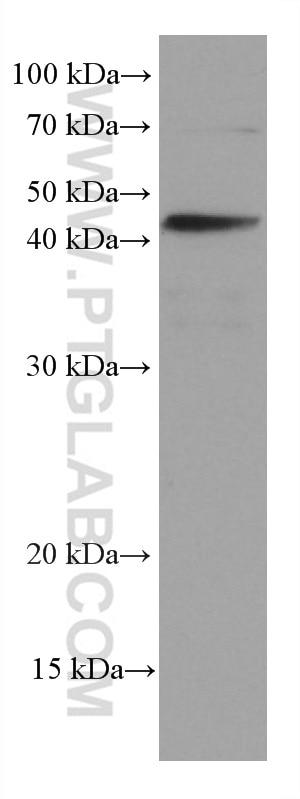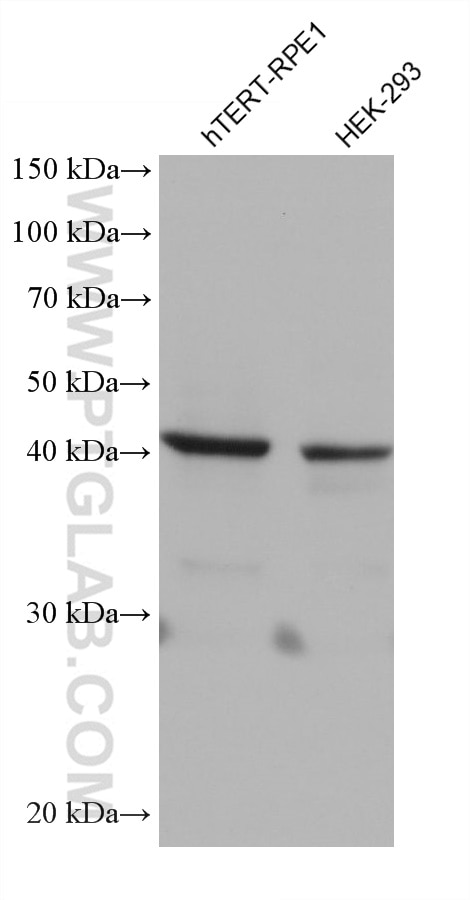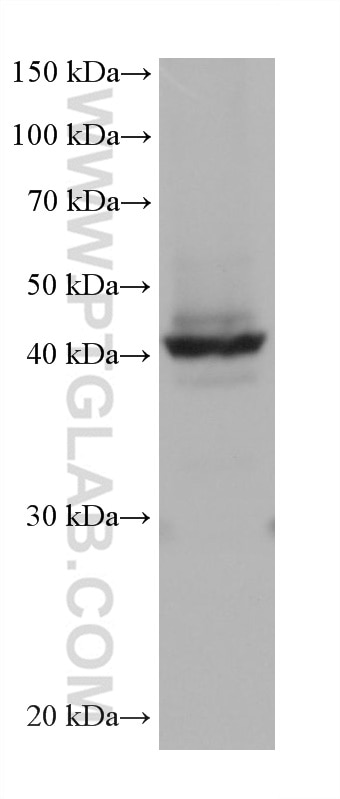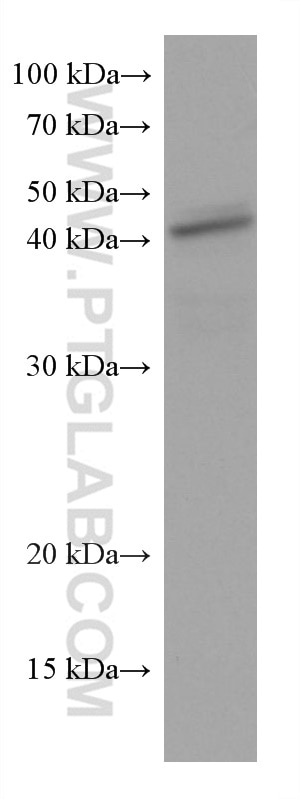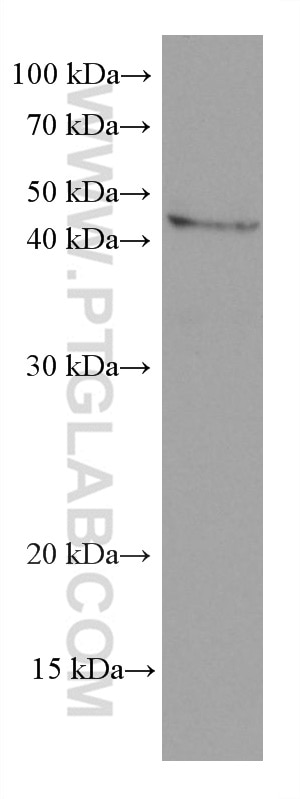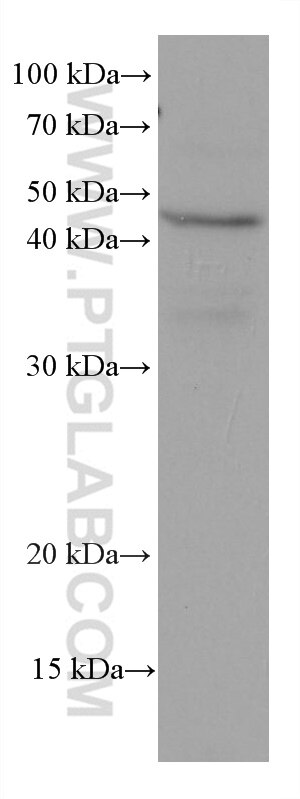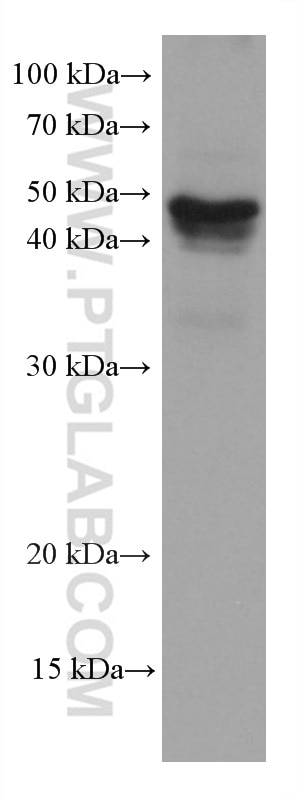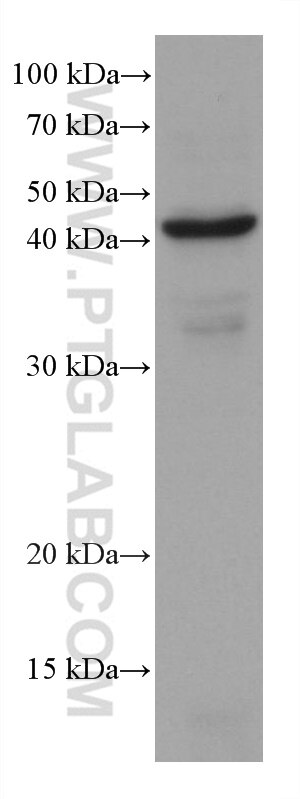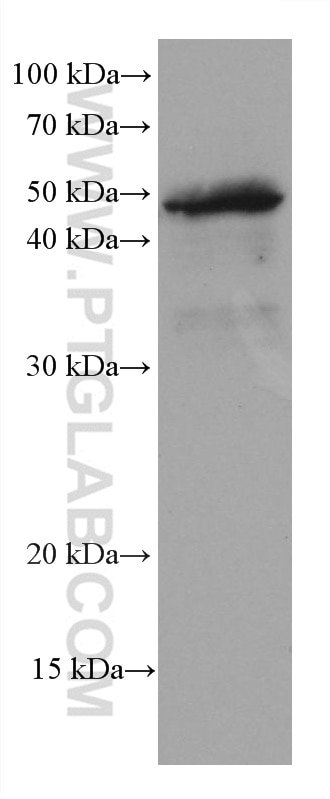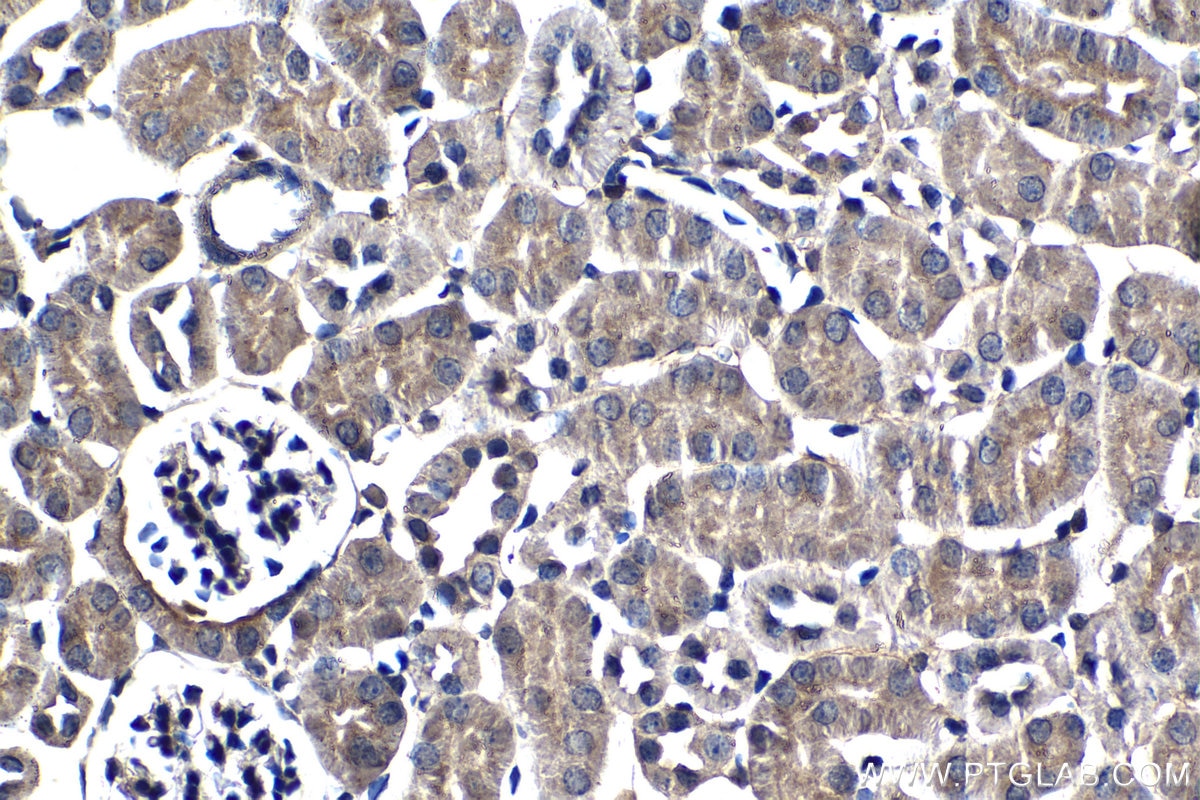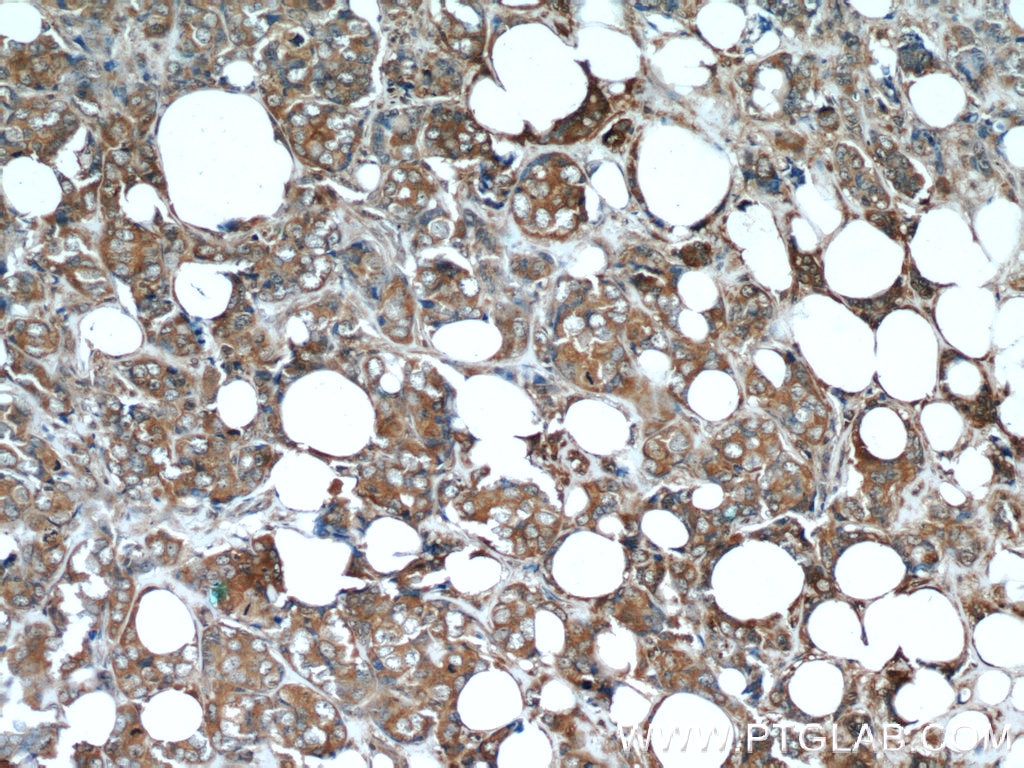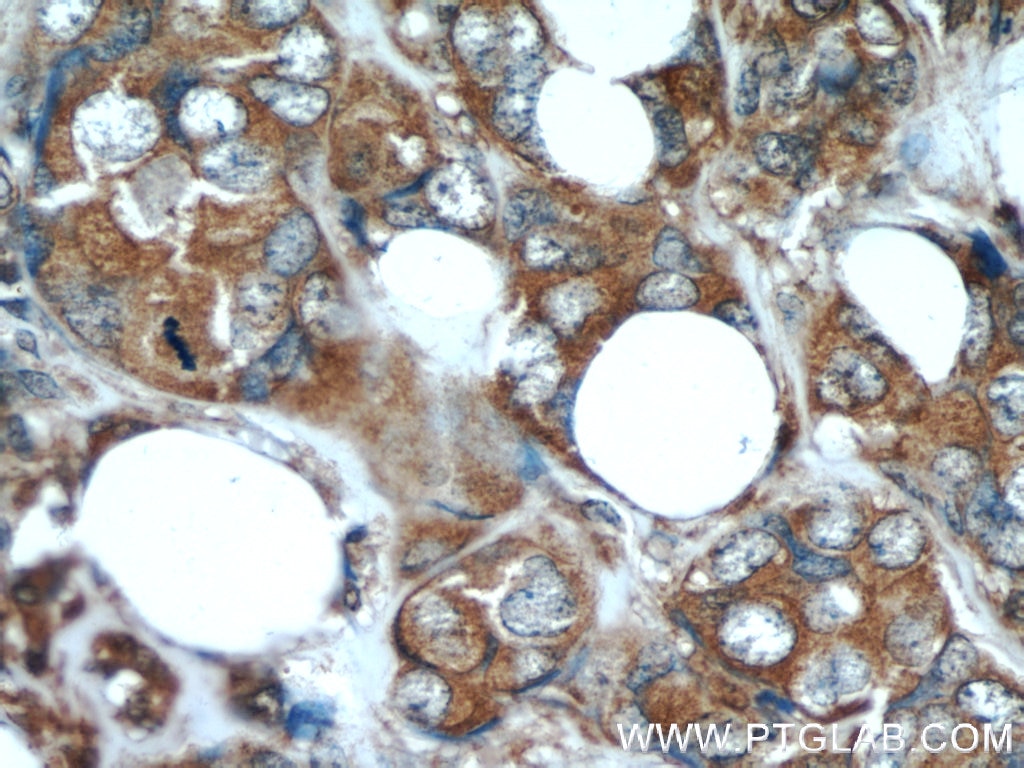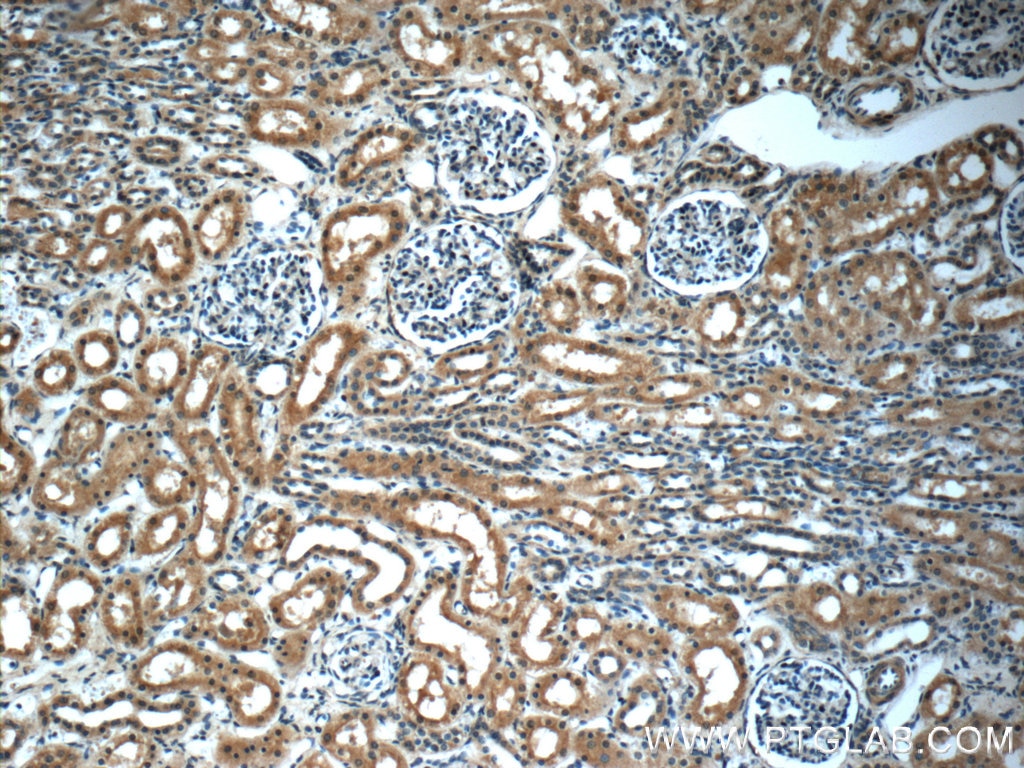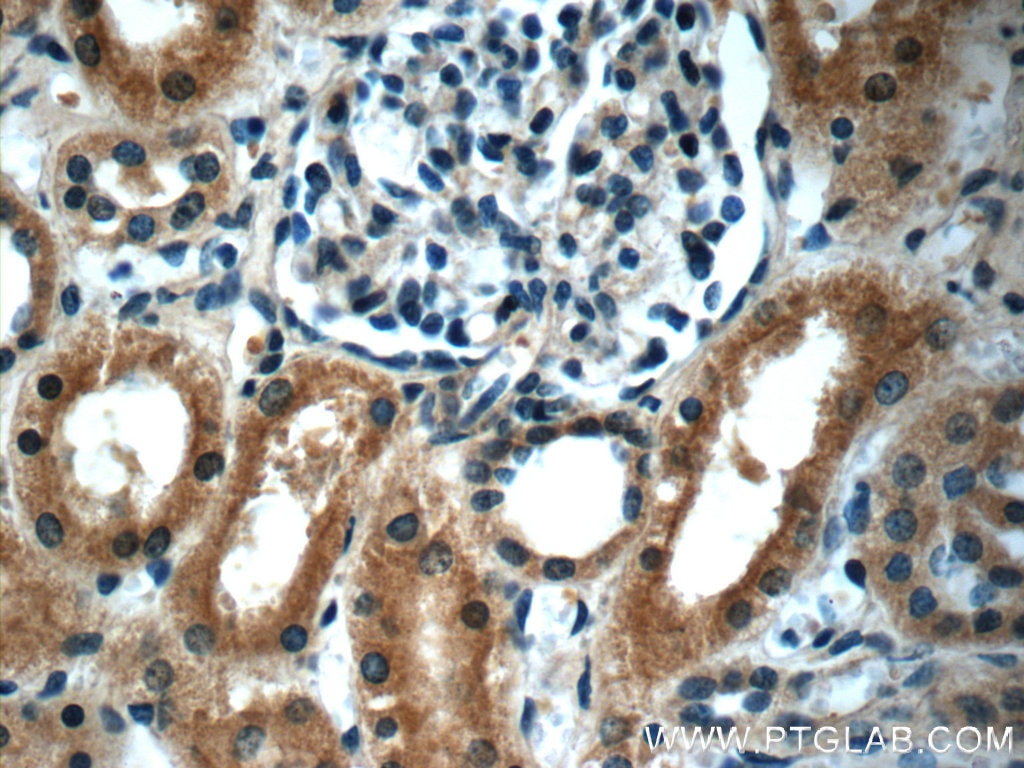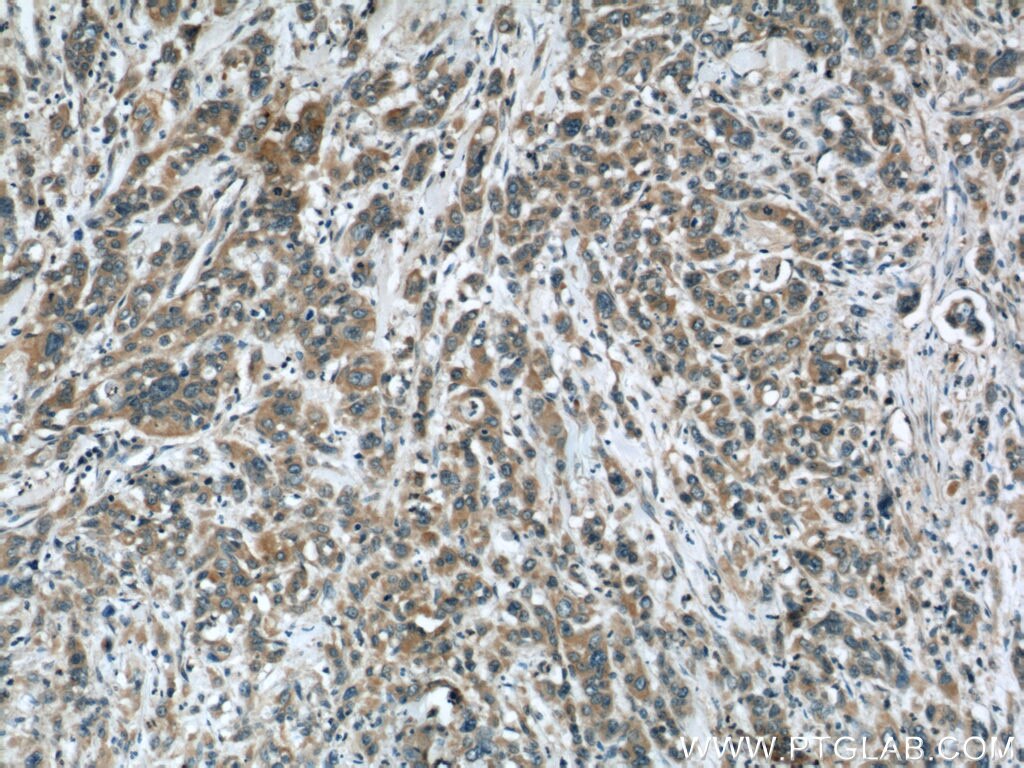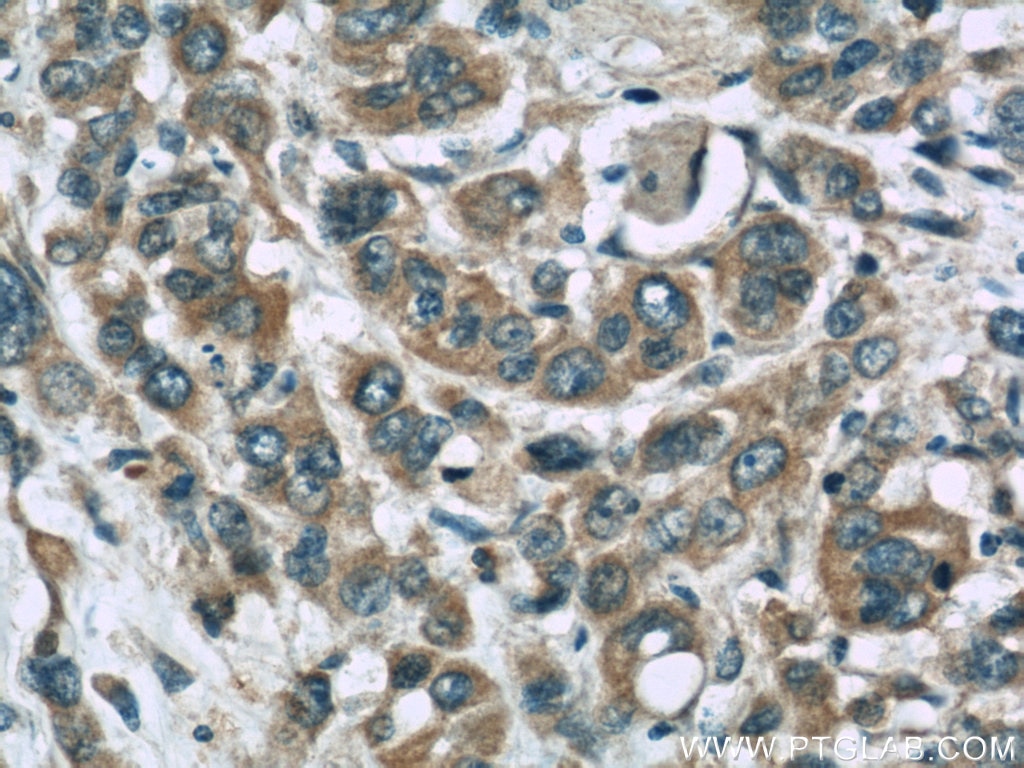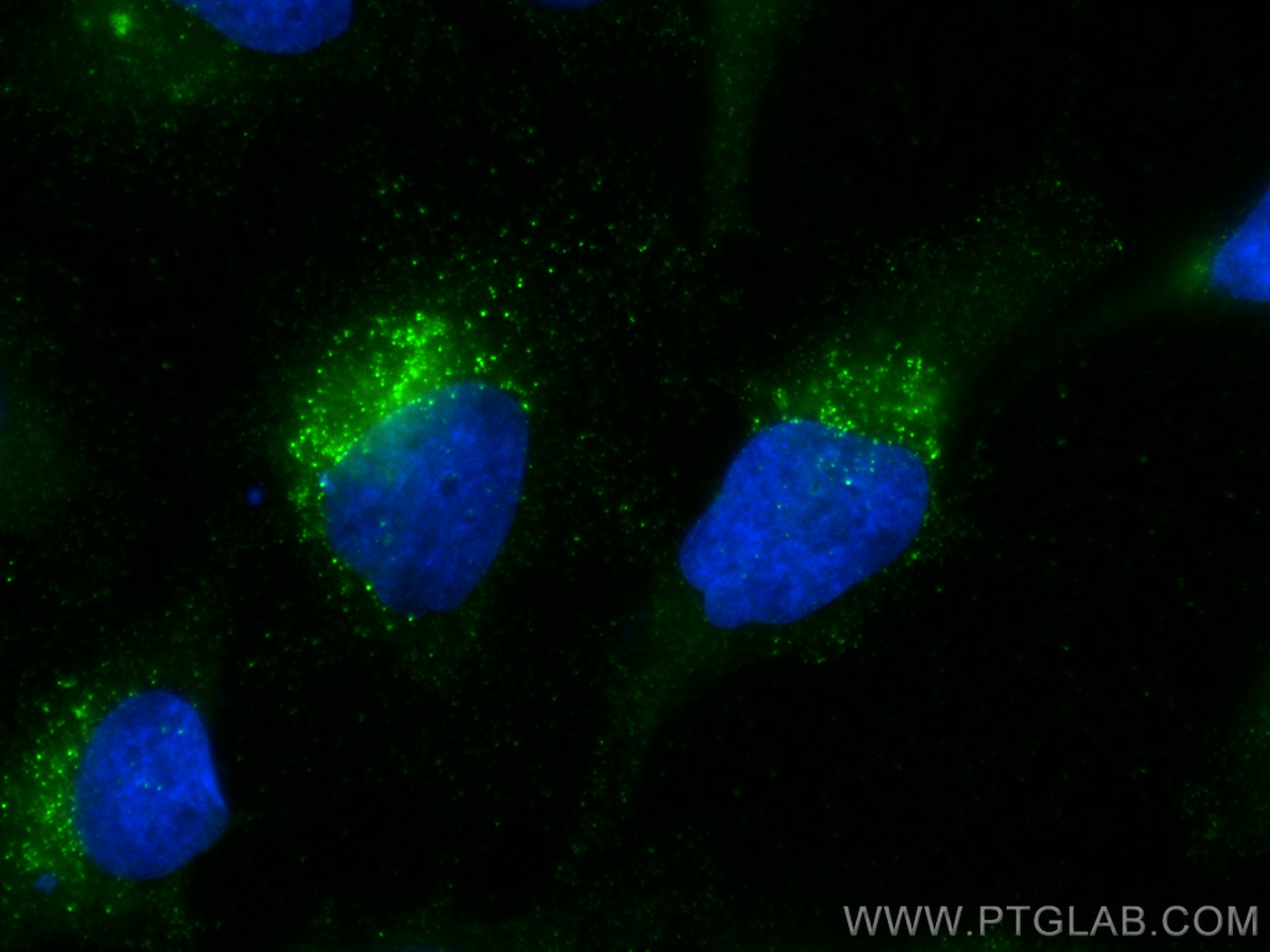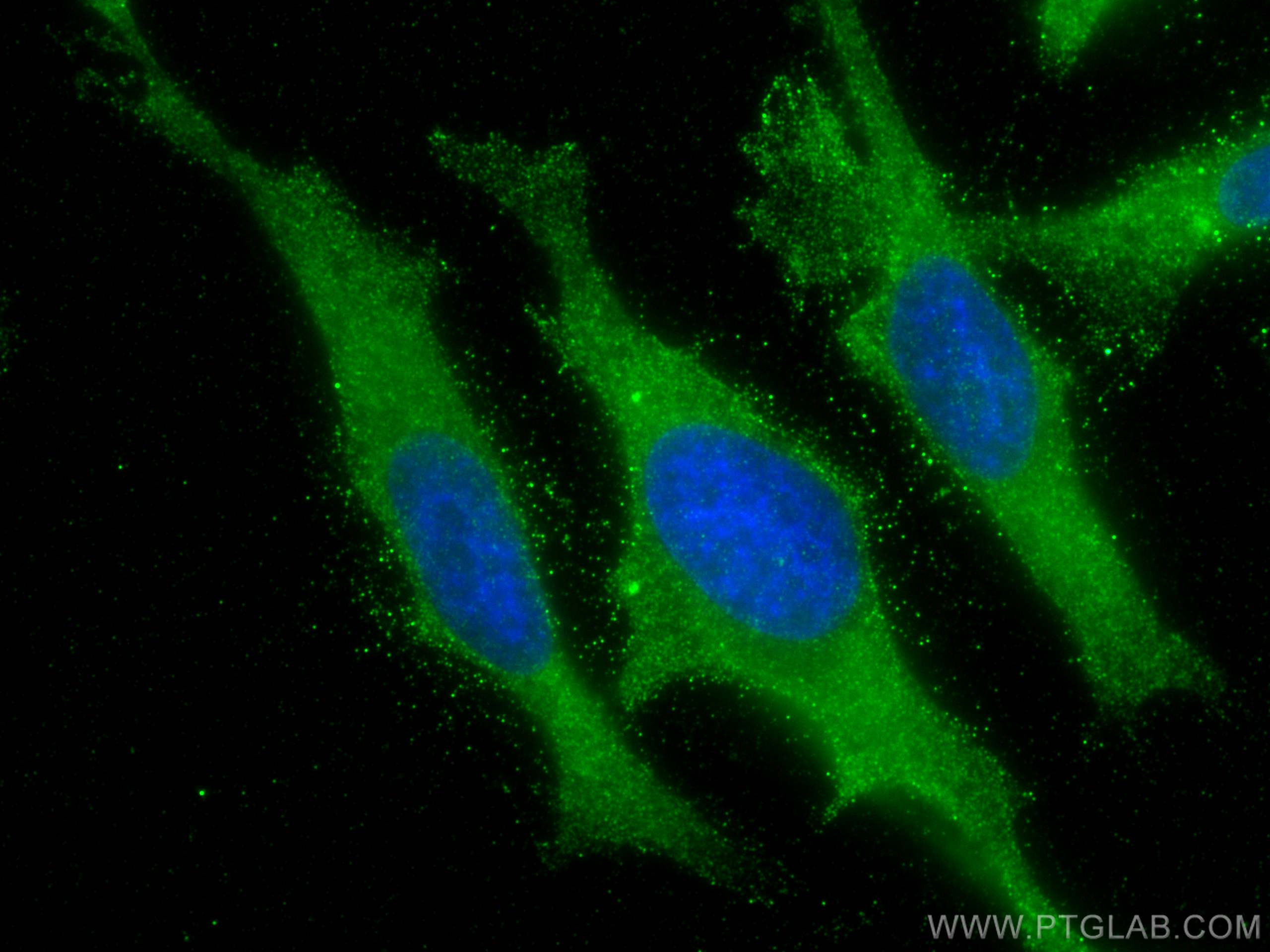- Phare
- Validé par KD/KO
Anticorps Monoclonal anti-Stanniocalcin 2
Stanniocalcin 2 Monoclonal Antibody for IF, IHC, WB, ELISA
Hôte / Isotype
Mouse / IgG1
Réactivité testée
Humain, porc, souris
Applications
WB, IHC, IF, ELISA
Conjugaison
Non conjugué
CloneNo.
4H1E7
N° de cat : 60063-1-Ig
Synonymes
Galerie de données de validation
Applications testées
| Résultats positifs en WB | cellules A549, cellules HCT 116, cellules HEK-293, cellules HepG2, cellules HT-29, cellules hTERT-RPE1, cellules PC-3, cellules T-47D, tissu cérébral de porc |
| Résultats positifs en IHC | tissu rénal de souris, tissu de cancer de l'estomac humain, tissu de cancer du sein humain, tissu rénal humain il est suggéré de démasquer l'antigène avec un tampon de TE buffer pH 9.0; (*) À défaut, 'le démasquage de l'antigène peut être 'effectué avec un tampon citrate pH 6,0. |
| Résultats positifs en IF | cellules HeLa, |
Dilution recommandée
| Application | Dilution |
|---|---|
| Western Blot (WB) | WB : 1:1000-1:6000 |
| Immunohistochimie (IHC) | IHC : 1:500-1:2000 |
| Immunofluorescence (IF) | IF : 1:400-1:1600 |
| It is recommended that this reagent should be titrated in each testing system to obtain optimal results. | |
| Sample-dependent, check data in validation data gallery | |
Applications publiées
| KD/KO | See 3 publications below |
| WB | See 4 publications below |
| IHC | See 3 publications below |
Informations sur le produit
60063-1-Ig cible Stanniocalcin 2 dans les applications de WB, IHC, IF, ELISA et montre une réactivité avec des échantillons Humain, porc, souris
| Réactivité | Humain, porc, souris |
| Réactivité citée | Humain, souris |
| Hôte / Isotype | Mouse / IgG1 |
| Clonalité | Monoclonal |
| Type | Anticorps |
| Immunogène | Stanniocalcin 2 Protéine recombinante Ag0359 |
| Nom complet | stanniocalcin 2 |
| Masse moléculaire calculée | 33 kDa |
| Poids moléculaire observé | 44 kDa |
| Numéro d’acquisition GenBank | BC000658 |
| Symbole du gène | STC2 |
| Identification du gène (NCBI) | 8614 |
| Conjugaison | Non conjugué |
| Forme | Liquide |
| Méthode de purification | Purification par protéine A |
| Tampon de stockage | PBS avec azoture de sodium à 0,02 % et glycérol à 50 % pH 7,3 |
| Conditions de stockage | Stocker à -20°C. Stable pendant un an après l'expédition. L'aliquotage n'est pas nécessaire pour le stockage à -20oC Les 20ul contiennent 0,1% de BSA. |
Informations générales
Stanniocalcin (STC) is a family of secreted glycoprotein hormones that originally discovered in the corpuscles of Stannius, an endocrine gland of fish. STC1 and STC2, two homologues of STC family, are reported to involve in calcium and phosphate homeostasis. It is expressed in a wide variety of tissues such as kidney, spleen, heart, and pancreas. The protein may play a role in the regulation of renal and intestinal calcium and phosphate transport, cell metabolism, or cellular calcium/phosphate homeostasis. STC2 overexpression could promote tumor cell proliferation, invasion and metastasis in prostate cancer, ovarian cancer or neuroblastoma. STC2 is also vital for cytoprotective properties when exposed to ER stress and hypoxia.
Protocole
| Product Specific Protocols | |
|---|---|
| WB protocol for Stanniocalcin 2 antibody 60063-1-Ig | Download protocol |
| IHC protocol for Stanniocalcin 2 antibody 60063-1-Ig | Download protocol |
| IF protocol for Stanniocalcin 2 antibody 60063-1-Ig | Download protocol |
| Standard Protocols | |
|---|---|
| Click here to view our Standard Protocols |
Publications
| Species | Application | Title |
|---|---|---|
J Hepatocell Carcinoma The Oncogenic and Diagnostic Potential of Stanniocalcin 2 in Hepatocellular Carcinoma. | ||
Biochem Biophys Res Commun The novel prognostic risk factor STC2 can regulate the occurrence and progression of osteosarcoma via the glycolytic pathway.
| ||
Biomed Res Int STC2 Is a Potential Prognostic Biomarker for Pancreatic Cancer and Promotes Migration and Invasion by Inducing Epithelial-Mesenchymal Transition.
| ||
Oncotarget STC2 promotes head and neck squamous cell carcinoma metastasis through modulating the PI3K/AKT/Snail signaling.
| ||
Neuroscience Profiling the Gene Expression and DNA Methylation in the Mouse Brain after Ischemic Preconditioning. | ||
BMC Med Genomics Osteosarcoma transcriptome data exploration reveals STC2 as a novel risk indicator in disease progression |
